 00:46:00
00:46:00
Paul Dirac and the religion of mathematical beauty
For the great theoretical physicist Paul Dirac FRS, the importance of mathematical beauty was 'like a religion'. Although his first papers on quantum mechanics showed an acute aesthetic awareness, he first set out his principle of mathematical beauty....
More details | Watch now 01:04:00
01:04:00
What if…? Coping with uncertainty in health science
Panel discussion involving Tracey Brown, Professor Angela McLean FRS, Professor Andrew Stirling and chaired by Professor David Spiegelhalter OBE FRS. How can we make decisions that affect our health when scientific advice is never 100% sure? Wha....
More details | Watch now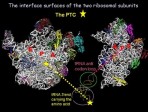 01:03:00
01:03:00
From bears’ winter-sleep to advanced antibiotics
Professor Ada Yonath, Weizmann Institute of Science, Israel. To facilitate instant recovery of active life once bears wake up from their winter sleep, nature provides ingenious mechanism based on periodic packing of their ribosomes, the cellular ma....
More details | Watch now 00:43:00
00:43:00
Ghosts of women past
Dr Patricia Fara, Clare College, Cambridge. "I do not agree with sex being brought into science at all. The idea of 'woman and science' is completely irrelevant. Either a woman is a good scientist, or she is not." So declared Hertha Ayrton over hun....
More details | Watch now 01:01:00
01:01:00
The end of the world in 2012? Science communication and science scares
21st December 2012 marks an ending of the Mayan calendar and is asserted by some to mark the end of the world. This scare is examined from an astronomical point of view, followed by some reflections on what the scare tells us about the communication ....
More details | Watch now 01:04:00
01:04:00
Nature’s glass: half-full or half-empty?
Andrew Balmford FRS is Professor of Conservation Science at University of Cambridge. The world’s governments failed to meet their pledge of reducing the rate of biodiversity loss by 2010. Wild populations, their habitats, and the benefits they pr....
More details | Watch now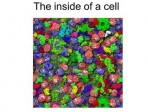 01:07:00
01:07:00
Finding patterns in genes and proteins: decoding the logic of molecular interactions
Dr Sarah Teichmann is based at the MRC Laboratory of Molecular Biology at the University of Cambridge. In the post-genomic era, high-throughput methods are providing us with a deluge of data about genes and proteins. What knowledge about biology do....
More details | Watch now 01:06:00
01:06:00
Sustainable materials: with both eyes open
Dr Julian Allwood is leader of the Low Carbon Materials Processing Group in the Department of Engineering at the University of Cambridge. One third of the world's carbon emissions are emitted by industry. Most industrial emissions relate to produci....
More details | Watch now 00:57:00
00:57:00
Wellcome’s collectors
Pharmacist, philanthropist – and Fellow of the Royal Society – Sir Henry Wellcome is now widely recognised as one of the most acquisitive of collectors during the late nineteenth and early twentieth centuries. But Wellcome’s collection of histo....
More details | Watch now 01:17:00
01:17:00
Trust Pays: how much does cultural exchange matter
Based on new international research undertaken with IPSOS Mori, the British Council's Trust Pays report considers questions such as How trusted is the UK? Does cultural exchange shape opinions of Britain? Does the level of trust have an impact on tra....
More details | Watch now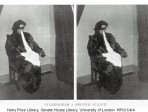 00:55:00
00:55:00
Spooks and spoofs: psychologists and psychical research in the inter-war years
Several physicist fellows of the Royal Society were interested in psychical research in the late nineteenth and early twentieth centuries. Between the wars, William McDougall FRS and other senior academic psychologists became involved with amateur ps....
More details | Watch now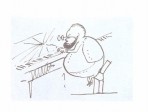 00:58:00
00:58:00
The Zoological World of Edward Lear
Clemency Fisher is Curator of Vertebrate Zoology at National Museums Liverpool. Edward Lear is most famous for his Nonsense Rhymes, such as “The Owl and the Pussycat” and “The Quangle Wangle’s Hat”, but he was also a talented zoological art....
More details | Watch now 02:00:00
02:00:00
Sir Andrew Huxley Memorial Lecture
Sir Andrew Huxley, President of the Royal Society from 1980 – 1985, died on 30 May 2012. A memorial event in his honour will be held on 17 October 2012 at 6pm at the Royal Society. It will include presentations on various aspects of his scientific ....
More details | Watch now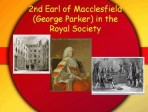 00:58:00
00:58:00
The Notorious Sir John Hill: Georgian Celebrity Science and Attacks on the Royal Society
No man in Georgian England ever attacked the Royal Society more savagely than Sir John Hill (1714-1775), and no one in his era was more notorious for public scandal. This talk sketches Hill's multi-faceted life and assesses his attacks on the Royal S....
More details | Watch now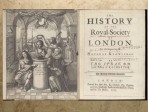 01:04:00
01:04:00
The Role of the Royal Society in the Battle over Mendelism
The early years of the twentieth century saw one of the most ferocious controversies in the whole history of biology, over Gregor Mendel's experiments in pea hybridization and their significance for the scientific study of inheritance. On one side, t....
More details | Watch now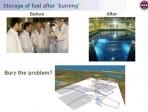 00:49:00
00:49:00
Extracting value from waste through a little chemistry with U
Uranium is one of the most famous, or perhaps infamous elements. It is the heaviest naturally occurring element, and sits amongst the metals at the bottom of the periodic table that fill their f-orbitals with electrons. Uranium and its oxides come in....
More details | Watch now 01:03:00
01:03:00
Looking for patterns in the prime numbers
The prime numbers 2, 3, 5, 7, 11, 13, 17... are those whole numbers with no factors, numbers that divide evenly into larger numbers, other than themselves and 1. They are the building blocks of arithmetic and have fascinated mathematicians for millen....
More details | Watch now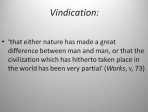 00:59:00
00:59:00
Natural History and the Rights of Woman
During the two-year period of the composition and publication of her Vindication of the Rights of Woman (1792), Mary Wollstonecraft, the mother of Mary Shelley and early advocate of women’s rights, read and reviewed a number of important works of n....
More details | Watch now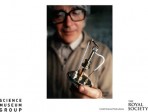 01:02:00
01:02:00
Heroes of science
Scientists love them. Historians of science can't stand them. The view that science rests on the shoulders of heroes and on them alone cannot be defended. Nonetheless, the public are moved and inspired by the stories of astronauts who've risked their....
More details | Watch now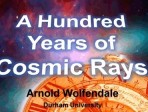 00:58:00
00:58:00
The Centenary of the Discovery of Cosmic Rays: the End of the Beginning
Sir Arnold Wolfendale FRS is Emeritus Professor of Physics at the University of Durham, and former Astronomer Royal. In 1912, Victor Hess embarked on a perilous balloon ascent and discovered the 'Cosmic Radiation', actually a beam of atomic particles....
More details | Watch now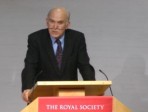 01:26:00
01:26:00
UK research: building bridges, building prosperity
World leading in quality and impact, UK research is helping us to identify new sources of energy for a more sustainable future and to seek cures for deadly and delibitating diseases. New and profound insights allow us to unearth the secrets of our ....
More details | Watch now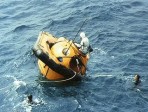 01:18:00
01:18:00
Rocket Science! UK & Russia in orbit
From the first human manned space flight piloted by Yuri Gagarin on Vostok 1 in 1961 and the first spacewalk outside a space craft in 1965 by Cosmonaut, Alexey Leonov, Soviet engineers and cosmonauts have made their mark in manned space travel. Joi....
More details | Watch now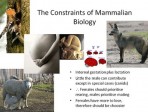 01:30:00
01:30:00
Would like to meet…
What do women want? What do men want? The question of what we find attractive has been asked worldwide for centuries. The importance of being attractive to the opposite sex has increased dramatically in recent times for both men and women. This event....
More details | Watch now 00:29:00
00:29:00
Coprolite Chemistry – what fossilised faeces can tell us about extinct animals
Faeces contains a complex mixture of chemical compounds, including substances from the diet and digestive processes. By better understanding the biology of extinct animals we can gain insights into how they interacted with their environment and poten....
More details | Watch now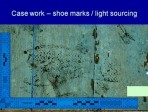 01:37:00
01:37:00
Following the fingerprints
From fingerprints to blood spatter, forensic techniques has greatly improved the criminal justice system ever since the discovery of DNA fingerprinting. The seemingly amazing results of these techniques have greatly increased the importance of forens....
More details | Watch now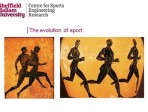 01:29:00
01:29:00
A high jump for science
Sport science is a discipline young in its years compared to medicine and astronomy but over recent years the pursuit of excellence in sport has driven it on. As we approach the London 2012 Olympics we look at what developments have been made in this....
More details | Watch now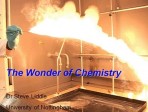 00:26:00
00:26:00
The wonders of chemistry
Chemistry is central to everything you do in your life. So much so, that we take it for granted and often forget about it. This talk, through a series of short demonstrations aims to convey the major themes that underpin the wonder of chemistry.
More details | Watch now 01:09:00
01:09:00
The mechanics of memory
How does the brain store and recall memories? A critical neural component of memory is the synapse, a specialist junction where one nerve cell releases a transmitter chemical to influence the excitability of another. Memorable events are thought to i....
More details | Watch now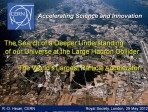 01:02:00
01:02:00
The search for a deeper understanding of our universe at the Large Hadron Collider
With the start of the Large Hadron Collider (LHC) at CERN, particle physics entered a new era. The LHC will provide a deeper understanding of the universe and the insights gained could change our view of the world, and the lecture will present some o....
More details | Watch now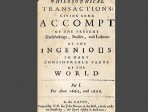 00:49:00
00:49:00
Triangulating positions: Hevelius, Halley and the management of the open-sights controversy
When the decade-long argument between Johannes Hevelius, the Danzig astronomer, and Robert Hooke about the respective merits of plain and telescopic sights for astronomical instruments reared its head again in 1685, the resulting controversy threaten....
More details | Watch now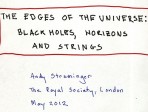 01:09:00
01:09:00
The edges of the universe: black holes, horizons and strings
The visible universe has edges, known as event horizons, which surround a black hole or a region of space speeding away faster than light. Event horizons are governed by a strikingly simple set of quantum laws which imply that black holes are at on....
More details | Watch now 00:54:00
00:54:00
Sir George Cayley (1773-1857), the father of flight
This talk discusses Cayley's pioneering aviation work, and his roles as an inventor and as founder of the Royal Polytechnic Institution in Regent Street. Cayley's work will be related to the scientific and intellectual milieu of the day, and to debat....
More details | Watch now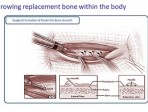 00:58:00
00:58:00
Regenerating organs and other small challenges
A disagreeable side effect of longer life-spans is the failure of one part of the body – the knees, for example – before the body as a whole is ready to surrender. The search for replacement body parts has fueled the highly interdisciplinary fiel....
More details | Watch now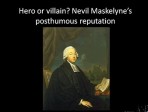 00:49:00
00:49:00
Hero or villain? Nevil Maskelyne’s posthumous reputation
Nevil Maskelyne, 5th Astronomer Royal and Fellow of the Royal Society, is today best known as the villain of Dava Sobel’s Longitude. This talk will, however, look further back and examine how Maskelyne has fared since his death in 1811, attempting ....
More details | Watch now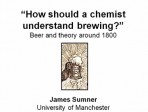 00:43:00
00:43:00
‘How should a chemist understand brewing?’ Beer and theory around 1800
Eighteenth-century chemists could gain useful income and patronage as advisors to industry – and some of the wealthiest and most influential industrialists were brewers. Making chemical knowledge credible to this audience, however, was not always e....
More details | Watch now 00:47:00
00:47:00
Chasing Venus: the race to measure the heavens
New York Times Best Selling and award-winning author Andrea Wulf tells the extraordinary story of the first global scientific collaboration set amid warring armies, hurricanes, scientific endeavour and personal tragedy. On 6 June 1761 and 3 June 1769....
More details | Watch now 00:30:00
00:30:00
Dream to reality?
Plastics pioneers had great aspirations for their new materials. Roland Barthes called plastics “a miraculous substance . . . a transformation of nature”. Serendipity, careful experimentation and entrepreneurial skills have all played significant....
More details | Watch now 01:00:00
01:00:00
‘Against images made by hands’: Florence Nightingale’s reluctant life in portraiture
Florence Nightingale disliked having her portrait taken as much as she hated being a celebrity, yet it was largely through the visual representations of her face and person in the press that she gained iconic status in Victorian England. Used as a mo....
More details | Watch now 01:00:00
01:00:00
What it means to be human
What does it mean to be human, and what makes us so? Does our brain, how we evolved, how we communicate, or how we interact make us human? Are we really so different from the other animals? An exploration of the boundaries of human nature, chai....
More details | Watch now 01:00:00
01:00:00
Shakespeare the metallurgist, Eliot the spectroscopist: the cultural journey of the chemical elements
From the moment of their discovery, each of the chemical elements has embarked on a journey into our culture. Over millennia and decades, they have gained meaning through encounter and manipulation. Those long known, such as gold, silver, iron and su....
More details | Watch now 01:00:00
01:00:00
How new science is transforming the optical microscope
There are two rules for making an optical microscope; the lenses must be small, since defects of colour and focus increase with lens size, and the lenses must capture light from the object over as wide an angle as possible to record fine detail. This....
More details | Watch now 01:00:00
01:00:00
Ruder Boscovic, the eighteenth-century polymath
Roger Boscovich (1711-1787) was a true polymath, making original contributions in science, technology and the humanities. He was born in Dubrovnik but spent much of his working life in Rome, at the Collegium Romanum. This lecture will introduce his l....
More details | Watch now 01:00:00
01:00:00
Stones from the sky: A heaven-sent opportunity to talk about science
Meteorites provide us with laboratory samples from distant bodies including asteroids, comets, the moon, Mars and even ancient stars. Witnesses to the extraordinary event when one is seen to fall from the sky, or anyone finding a sample on the ground....
More details | Watch now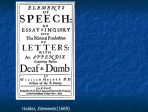 00:59:00
00:59:00
Teaching language to the deaf in the 17th century: the dispute between John Wallis and William Holder
In the early years of the Royal Society an acrimonious dispute broke out between John Wallis and William Holder as to which of them had been successful in the ÔexperimentÕ of teaching the deaf child Alexander Popham to speak. Using evidence from th....
More details | Watch now 00:44:00
00:44:00
Standing on the shoulders of giants: cumulative culture and social learning strategies
Building upon the knowledge of others over many generations, currently referred to as cumulative cultural evolution, is arguably unique to humans and widely thought to be responsible for our success in colonising virtually every terrestrial habitat o....
More details | Watch now 01:05:00
01:05:00
Pandemic Influenza: one flu over the cuckoo’s nest
Where do the pandemic influenza viruses come from and why did experts fail to predict the severity of the 2009 pandemic? However to date, the 2009 H1N1 pandemic influenza has been much less severe than the 1918 Spanish influenza.
More details | Watch now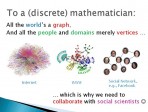 00:45:00
00:45:00
The Mathematics of Web science.
The Web and associated technological and social networks provide both mathematical challenges and opportunities. How do we model the evolution of these networks taking into account both observed features and incentives?
More details | Watch now 00:46:00
00:46:00
Enhancing communication and structured data on the Web
Rigid interfaces force people to present or look at information the wrong way. We need a new generation of flexible Web tools that help people gather the information they want from wherever it is, organize it however they like, create the interaction....
More details | Watch now
